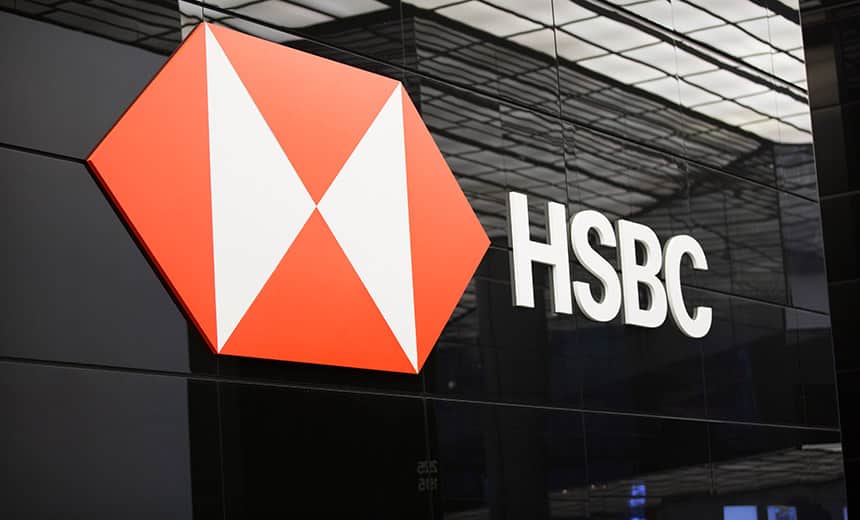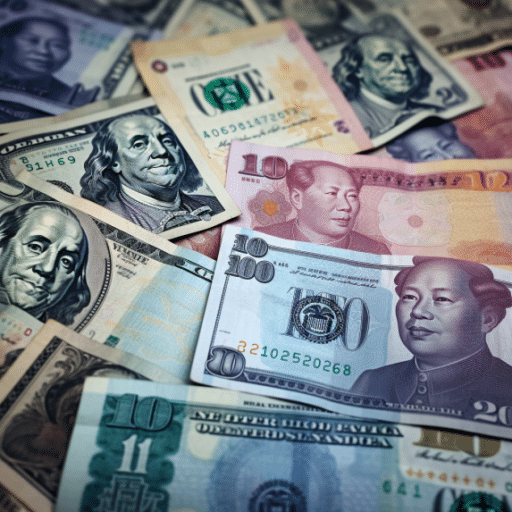This article will review HSBC Term Deposit account. It continues our reviews of savings accounts after I looked at Marcus by Goldman Sachs , Emirates NBD and an expat-specific solution.
The article will look at the positives and negatives of the accounts, although it remains our position to in an era of 0% interest rates, saving money in the bank doesn’t make sense.
For any questions, or if you are looking to invest, you can contact me using this form.
Introduction

HSBC was born out of one simple idea – to create a local bank serving international needs. In March 1865 HSBC opened its doors for business in Hong Kong. Today it is one of the world’s largest banking and financial services organizations. HSBC is one of the leading international banks in the world. The bank has developed a long-term strategy that reflects its goal and allows it to open up opportunities for its clients around the world.
HSBC’s presence in what is now the UAE dates back to 1946 when the Imperial Bank of Iran, the predecessor of HSBC Bank Middle East, opened its doors to merchants and UAE citizens. After leaving Iran, the bank was renamed the British Bank for the Middle East (BBME). In 1959, BBME was acquired by The Hong Kong and Shanghai Banking Corporation Limited. The Bank has played a key role in creating the banking sector in the MENA region.
In short, HSBC finance trade between Asia and Europe. 100 years later, they moved to Australia and in 1986 received a commercial banking license. HSBC is currently one of the largest banking and financial institutions in the world, serving 48 million customers worldwide through 6,000 offices in 71 countries.
This was general information about the bank, but in this article we will focus on one of the offered saving accounts of HSBC called Term Deposit Account, after I would like to talk about the differences between saving and investing accounts, about the currency and other risks that an expat could have.
So what is Term Deposit Account? If you are looking for a way to invest money and multiply it over a certain period with a fixed interest rate, you may be interested in learning more about HSBC term deposits.
HSBC Term Deposit offers the flexibility to be fully connected to the Internet and receive bonus interest. When you open HSBC Time Deposit online, it rewards your account by increasing your interest rate by another 0.10% per year. With this type of high interest rate savings account, your money is tied to a fixed interest rate term, which lets you know exactly how much will be earned and gives you more incentive to realize that potential.
- HSBC Term Deposit Account Overview.
According to HSBC, it offers term deposits with terms (the length of time your money is deposited) typically ranging from a minimum of one month to a maximum of five years. Here is why this savings account has such a name, now everything is clear.
You can use the Term Deposit Calculator to determine the appropriate term length. One factor to consider is that longer maturities usually come with higher interest rates, but you may have to wait longer to get the maximum interest rate that can occur when the maturity date is reached. When deciding to make a term deposit, it is recommended to carefully consider the length of the investment period, as some products may charge fees and require a certain notice period if you need to access your money earlier.
HSBC Term Deposits offer customers the opportunity to receive interest payments with the following frequency:
- monthly
- quarterly
- annually
- at maturity
Keep in mind that the option you choose can affect the interest rate you earn. The Term Deposit Calculator can help you decide how to increase the percentage paid on your time deposit. In case the term deposit expires, HSBC will reinvest the funds in the term deposit for the same term at the prevailing interest rate, unless you give them at least two days in advance.
Also, HSBC requires you to provide 31 days’ notice if you need to access your money earlier. HSBC charges an early withdrawal fee of $ 30 and applies an interest rate adjustment if you withdraw your money before the expiration date. In the official website you can easily find additional information on any interest adjustments or other early withdrawal penalties that may apply.
*About the prices
First of all, the bank requires $ 5000 minimum opening deposit, which is equal to AED 10,000. The maximum interest rate can be up to 1% per year. As already mentioned, you can choose the term of your investment to be in the circulation, the minimum term is one month and the maximum one is 5 years, you also have an option to use the term deposit calculator and figure out the most suitable term for your funds, also, you can see how much you will get during that time.
Certainly, the interest rate is different and depends on the term you chose, for instance for a month of saving the rate is 0.25%, for two months – 0.35%, for three months – 0.60%. For 4 to 11 months the interest rate will be 0.50%, and as already noted the maximum rate for a year is about 1%.
Pros:
- The account is available in AED, USD or GBP.
- You can earn bonus while opening through Online and Internet banking.
- Interest rate up to 1% per year over the term of the deposit.
- Wide choice of terms starting from 1 month and up to 36 months.
- Free online banking, phone banking, mobile banking and text message alerts.
- HSBC team is extremely efficient in the way they operate the account.
- $0 balance to keep your account.
Cons:
- Pretty high minimum deposit requirement of AED 10,000 or USD/GBP 5,000.
- Not enough branches and not as convenient.
- Service is not the best and could be easier to access.
- The interest rate is not the most competitive, so you can easily find another option with a higher rate.
- Size is not a good thing. It leads to corruption. A lot of the challenger online firms are better.
- How to open an account?
Before applying for an HSBC Term Deposit, try to first compare it with other term deposits on the market to make sure it suits you. When applying, consider the HSBC selection criteria and what you may need to have in front of you, such as:

- Your TFN (tax file number)
- Identity document, such a passport, ID card or a driver’s license
- Personal information, including your residential address, contact information, and possibly information about your current job.
If you are applying for a term deposit on behalf of a business, self-governing superfund or other type of legal entity or organization, you may be required to provide documents other than those listed above. The conditions applicable to your term deposit may vary slightly.
Only existing HSBC customers can apply for a term deposit online – new customers need to visit their local branch or contact them by e-mail or a telephone number which you can find in the official website of the bank.
According to HSBC, when applying for a time deposit, you will need to meet the following eligibility criteria:
- You must be at least 18 years old.
- You must invest a minimum deposit of $ 5,000.
- You must be willing to invest for a specified period of time within the specified minimum and maximum terms.
- Which is better a term deposit account or an investment account?
Savings
There are many benefits in opening a savings account rather than an investment account. First reason is that the dollar amount you put into a savings account will not decrease over time until you withdraw funds. This is important because certain goals must be met regardless of whether investment prices rise or fall. Savings account also allows you to reach your goal on time if you set aside the proper amount each month. Take the amount you need to save and divide by the number of months until you reach your goal to find the amount you need to save each month.
However, there are some disadvantages in having a savings account. Due to inflation, the value of the money saved will decrease every year. If you receive interest, that interest can offset some of the negative effects of inflation.
Unfortunately, interest rates rarely keep pace with inflation. Savings account also means that you have to save more money each month than if you were making a higher return on investment.
If you only earn one percent in a savings account but can earn like 6-7% on your investment, you will have to make up for that six percent difference by investing more money in your savings account to achieve your goal at the same time.
Investing
Investing can be profitable too. Investing gives your money the opportunity to grow faster than a savings account.
If you have a lot of time to reach your goal, your income will increase.
Essentially, this means that in addition to a higher rate of return on investment, your investment income will also generate money over time. The advantage of a higher return on compound interest is that you don’t have to invest as much monthly as you would need to save each month to meet your goal.
However, investing is not always good. Investment prices can drop right before you need the money, which can put you in a difficult position.
If this happens, you will either have to settle for a less expensive option, postpone reaching the goal until you can save more money, or postpone achieving the goal until your investment has increased in value.
Anyways, sometimes it can be difficult to decide when to save or invest. Each person’s situation is totally different and you must base your decision on your current financial situation.
If you are unsure of what to do, you should consult with a fiduciary financial advisor to help you make your decision.
But here is a quick guide which I hope can help you navigate. Everything is super simple, if you have short-term goals you can save, and in contrast if your goals are planned for a long-term just invest.
Here is a logical explanation of the mentioned above formula, if you absolutely need money by a certain date, save rather than invest.
There is no risk of reducing your balance while maintaining. On the other hand investing gives you the opportunity to make big returns if you have long-term horizons, and can delay reaching your goal if things don’t go as planned.
The idea is to delay reaching the goal. If the investment diminishes at the time you originally planned to reach your goal, a couple of years delay may cause your investment to return to a higher value. Now it’s up to you whether you want to invest or save.
- Currency and other risks for expats.
When you are an expat and you want to open a savings account in UAE, you have to be aware that there could be some general risks such as currency risks, limitations, or some extra fees that you have to pay and many other surprising things.

Here in this part you can find almost all the risky points and be informed before opening a savings account. Let’s start from currency risks.
Currency issues are often among the most frustrating and least understandable for investors. Getting good long-term savings is imperative to take some risk.
Strong fluctuations in exchange rates (FX Rates) are one of the risks of savings accounts.
When you put your hard-earned savings into an account for long-term savings or other types of savings, you can expect to benefit from the expected long-term growth in those savings. Unfortunately, good savings results can be reduced or reversed altogether by changes in the exchange rate between the currency of your savings and the currency in which you pay your bills. This is called “foreign exchange risk” or “FX rate risk”.
To avoid these kinds of risks, every expat must consider and learn these things before opening a savings account or investing. You have to look for countries with strong and rising currencies, as high debts precede high inflation.
And when inflation starts, currencies tend to fall as confidence in them falls. However, in countries with a low debt-to-GDP ratio, the exchange rate rises, which can be beneficial for US investors.
Another risk is connected to your goals, if your goal is to earn money, a savings account might be frustrating. Savings accounts are not designed to accumulate high returns on the money invested in them. One of the major drawbacks of savings accounts is that they offer low-interest rates, which means low returns for you. The rate of return can be so low that you run the risk of inflation eroding the value of your deposit. If you are interested in growing your reserves, another option is stocks or bonds, as you rarely see any significant change in savings accounts. Of course, the stock market is riskier than a federally insured bank savings account, and you have to weigh the risks.
Also, some banks charge an annual fee to open a savings account. The commissions in your savings account may be higher than the amount of interest you earn in your savings account.
Various actions in your savings account can trigger hidden fees. For example, lowering the minimum balance may trigger penalties. So be aware of the terms of your savings accounts and all the associated small fees so you don’t get a surprise bill at the end of the year.
Savings accounts can have various restrictions that can work against you or your access to your money.
Some general restrictions include a minimum dollar amount you must deposit to activate an account, a constant minimum account balance requirement (otherwise penalties apply), and a limit on the number of transactions you can make in a given period.
Because savings accounts are safe, you are not as free or flexible to do whatever you want with your money as you might with a more risky investment, unless you are prepared to face bank penalties.
- A comparison to other savings accounts.
In order, you are sure that you want to open a savings account, in this article you can find other options from different UAE banks and decide yourself which one is better and is suitable for you and your financial resources.

Again, the most important things you have to consider while choosing your future bank are the percentage of the interest rate and the minimum investment amount.
These two factors can tell you is the bank’s offer matches your current position or not. Now let’s compare the HSBC Term Deposit account with other accounts and see their pros and cons.
- National Bonds myPlan – here the annual return is up to 4%, just imagine how much is it. The MyPlan National Bond Program is a time deposit scheme in which depositors buy bonds for a specified period of time. National Bonds offers a range of savings options, but myPlan is a winner because of how easy it is to make your money work for you. What you do is simply say how much you want to save each month and for how long (12, 24 or 36 months), and at the end of the term you get all your money plus profit. You don’t have access to your money for the entire term, but this means that the yield is much higher than a standard savings account.
- CBD Now Save Now Account – the annual return is up to 1.75%. This account offers the best of both worlds, with flexibility in how you can access your savings and a reasonable interest rate. There are no restrictions, you can deposit or withdraw from your account at any time. A digital-only bank pays 1.75% per annum on savings of up to AED 500,000 in the first months. It then drops to 1 percent, but that’s still good for a no-obligation savings account. The account can be managed through a modern mobile app that allows you to set up and track your budget and does not require a minimum balance. However, this account is much less attractive to those with a large balance, as the rate will drop to 0.1 percent above AED 500,000.
- Emirates Islamic e-Savings Account – Sharia-compliant bank account offers an expected rate of return of up to 2 percent per annum on an account balance of AED 5,000 to AED 50,000. This figure is reduced to 1.3% for balances from AED 50,000 to AED 3.5 million and to 1 percent for balances up to AED 25 million. These earnings are for Dirham depositors and below for the dollar version. The e-savings account is only available online. Again, there are no minimum balance requirements and restrictions on withdrawals, although withdrawals may affect the calculation of the profit balance. While traditional multi-tier savings accounts raise interest rates as the amount you save rises, some in the UAE are doing the exact opposite, including this one. They offer lower interest rates on higher account balances, especially on many of the purely online savings accounts, as they aim to attract a large number of middle-income clients rather than a smaller number of very wealthy depositors.
In front of you are a few savings account options with different interest rates and minimum requirements.
You can always find a suitable option for you and your financial needs, if you want to get a higher income and you have long-term goals, it’s better to open an investing account, but if you want to invest for a short-term, savings account is what you need.
Now you know more about investing and savings accounts and the further decision is yours.
Conclusion
There is nothing wrong with this account. But you are better off using a challenger bank like Revolut, and investing rather than saving money.
Further Reading: RL360 Quantum Savings Plan Review outlines long-term savings solutions, similar to HSBC Term Deposit Account Review.



